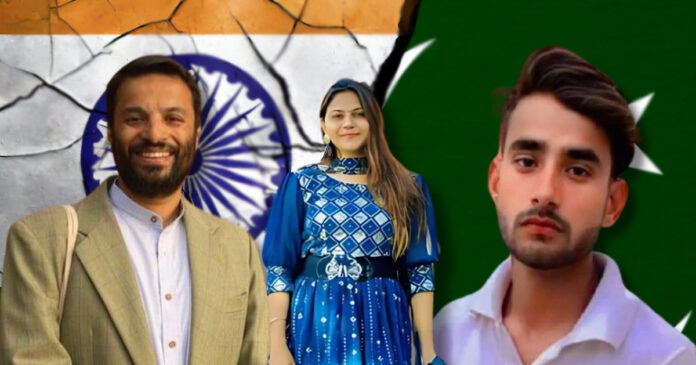The past few weeks have been pretty hectic for India and Pakistan. It seems like the war didn’t age well on both sides, but India specifically developed a paranoia. Indian paranoia is that every peace-loving citizen of theirs has some association with Pakistan’s intelligence agency, ISI. However, the government has no hard evidence of these claims except for mere doubts or evidence they produced themselves. They don’t speak the language of hate and political instability like their government wanted them to.
As a result of these speculations, a series of arrests and detentions have followed, raising concerns about civil liberties and surveillance in India.
Hunting ghosts now, are we?
Arrest of Professor Ali Khan Mahmudabad
The arrest of Ali Khan Mahmudabad, an associate professor at Ashoka University, just proves this point.
Ali Khan Mahmudabad is a professor from an elite, private liberal arts university. He was detained for a social media post criticising the Indian government’s handling of military operations against Pakistan. The professor was arrested on Sunday under sections of the criminal code pertaining to acts prejudicial to maintaining communal harmony, incitement of armed rebellion or subversive activities, and insults to religious beliefs. The complaint against him was filed by Yogesh Jatheri, general secretary of the youth wing of the ruling Bharatiya Janata Party (BJP) in Haryana.
In a Facebook post on May 8, Mahmudabad had said: “I am very happy to see so many right wing commentators applauding Colonel Sophia Qureshi but perhaps they could also equally loudly demand that the victims of mob lynchings, arbitrary bulldosing and others who are victims of the BJP’s hate mongering be protected as Indian citizens.”
“The optics of two women soldiers presenting their findings is important, but optics must translate to reality on the ground, otherwise it’s just hypocrisy.” The post referred to the usage of Sophia Qureshi (a Muslim officer in the Indian army) strategically to give an impression while also simultaneously attacking Muslims and bulldozing their houses in plain sight. It was a valid point that was clearly just a call for peace and for doing more than just weaponising Muslim names. But guess how it was painted? With misogyny and antifeminism. Ah, yes, the most convenient cards to play.
My statement re the summons that I received from the Haryana State Women’s Commission.
The posts that were misunderstood and objected to can be accessed on my Facebook page. pic.twitter.com/U4rZrAXhFx
— Ali Khan Mahmudabad (@Mahmudabad) May 14, 2025
Targeting Social Media Influencers
The paranoia doesn’t end at the university gates. Take the case of Jyoti Malhotra, a travel vlogger who was arrested on espionage charges for “allegedly” sharing sensitive information with Pakistan. The evidence? Vague allegations and her travel history.
The vlogger was booked under Sections 3, 4, and 5 of the Official Secrets Act, 1923, and Section 152 of the BNS. Why? Well, according to officials, Malhotra was acting like a travel vlogger but was using her platform to project Pakistan in a positive light while ignoring terrorism from across the border. They claimed this was a tactic to influence Indian viewers. In one of her videos, she is seen telling a Pakistani woman, “Hindustani Pakistani Behen Behen.” This isn’t counterterrorism; it’s nationalist hysteria.

A Democracy in Decline
Let’s be honest: this isn’t about protecting India. It’s about controlling the narrative. The BJP-led government, emboldened by electoral dominance and a largely compliant media, is using “national security” as a blunt weapon to crush dissent and consolidate power. India’s founding principles are being replaced with fear, hyper-nationalism and loyalty tests.
If you ask uncomfortable questions, you’re labelled anti-national. If you criticise military action, you’re branded a traitor. And if you have any remote connection to Pakistan, real or imagined, you’re treated as a security threat.







































